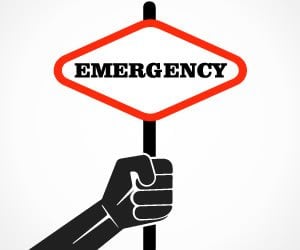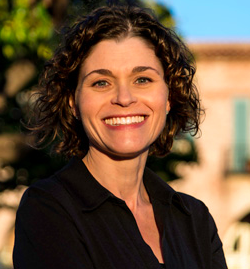Last Updated on June 27, 2022 by Laura Turner
Emergency physicians experience burnout at a rate of more than three times that of the average doctor and more than anyone else inside or outside of the medical field, according to a study published in the Archives of Internal Medicine (1). The study surveyed over 7000 physicians in more than two dozen specialties and compared them with almost 3500 working adults in fields outside of medicine. More than 65% of emergency physicians reported burnout, compared to 55% of internists (the next crispiest specialty), and 27.8% of the general population.
What is most striking to me, as a practicing emergency physician and former Assistant Residency Director in emergency medicine, is that while emergency physicians are tired of their work, medical students are competitively vying for it. In the 2012 NRMP® Match, all 1668 of the available Match positions in emergency medicine were filled. This year, too, after the Match and SOAP (Supplemental Offer and Acceptance Program, which replaced the “Scramble”), there were, again, no unfilled emergency medicine residency slots. What explains this strange disconnect?
To solve this puzzle, we must start by exploring why emergency physicians are burning out in the first place. When I started my residency in the mid-1990s, mentors told me that the professional chronic fatigue syndrome (a recognized problem even then) stemmed from the fact that so many emergency physicians had not been trained in the field. Because emergency medicine did not even become a recognized specialty until 1979, many doctors working in the emergency department had not been residency-trained in emergency medicine. The conventional wisdom then was that the people who couldn’t last in this specialty had never anticipated entering it. Thirty years after emergency medicine’s recognition as a formal specialty, this explanation for burnout seems deficient. Today’s burned-out physicians should have known what they were in for.
Alternate reasons I was given for burnout included what a mentor told me were the two worst aspects of emergency medicine: consultants and nights. Here we may be getting closer to the real root of the problem and the disconnect with the field’s medical student popularity.
My mentor may have said “consultants” half-jokingly, but actually, I think identifying consultants as a root cause of emergency medicine burnout really speaks to the lack of autonomy and control in the field. Usually, an emergency physician doesn’t pick whom she works with, whom she treats, how heavy her workload is, or how heavy the emotional toll of her workday might be.
For many medical students, a lack of autonomy is not the first worry on their minds. After all, they have little autonomy already as medical students. Furthermore, it’s hard in one’s twenties to envision what one’s future medical practice should look like to maximize individual happiness and self-determination.
With regard to nights, there is no question that the erratic schedule that full-time emergency physicians manage is exhausting. Shift work has been associated with health problems, including an increased risk of diabetes, depression, heart disease, and breast cancer. It also adversely affects one’s personal life, a problem that may be heightened if someone has a partner and children. Again, though, early in a medical career – when someone is in her twenties – these issues may not be pressing, depending on one’s physical and family state. It’s hard to envision preschool carpools and community barbecues when you are still pulling all-night drives to Vegas on your weekend off.
The best advice I’d offer to prospective medical students is to find someone in the field who embodies the life you envision for yourself. Do you ideally hope to have children and practice part-time? Or do you have an interest in international emergency medicine with plans to practice abroad half the year? Ask your mentors to direct you to practicing emergency physicians in the community who are in these situations and can speak frankly about the pros and cons of their careers. Unable to find a role model who fits the life you hope to lead? While enthusiastic supporters may cheer you on to become the pioneer who beats a new path, the realist in you should take note that if nobody is doing what you’d like to do yet, it may be because it’s impossibly hard to do.
A primary goal of medical education should be to ensure that medical students are choosing the right fields and developing into physicians who lead lives with sufficient balance and satisfaction such that they can be productive and provide excellent patient care. With today’s emphasis on preventive care, the best way for the proverbial physician to “heal thyself” may be to know intimately in advance which individual pitfalls to avoid in the first place.
Dr. Finkel, formerly a Harvard Medical School faculty member, is the founder of Insider Medical Admissions, where she develops and executes winning strategies for medical school and residency applicants from an insider’s perspective. Check out Dr. Finkel’s under-one-minute, stop motion Guru on the Go© videos on her Youtube site, and check her out on Facebook and Twitter.
References
Shanafelt TD, Boone S, Tan L, et al. Burnout and satisfaction with work-life balance among US physicians relative to the general US population. Arch Intern Med. 2012; 172:1-9.
What is most striking to me, as a practicing emergency physician and former Assistant Residency Director in emergency medicine, is that while emergency physicians are tired of their work, medical students are competitively vying for it. In the 2012 NRMP® Match, all 1668 of the available Match positions in emergency medicine were filled. This year, too, after the Match and SOAP (Supplemental Offer and Acceptance Program, which replaced the “Scramble”), there were, again, no unfilled emergency medicine residency slots. What explains this strange disconnect?
To solve this puzzle, we must start by exploring why emergency physicians are burning out in the first place. When I started my residency in the mid-1990s, mentors told me that the professional chronic fatigue syndrome (a recognized problem even then) stemmed from the fact that so many emergency physicians had not been trained in the field. Because emergency medicine did not even become a recognized specialty until 1979, many doctors working in the emergency department had not been residency-trained in emergency medicine. The conventional wisdom then was that the people who couldn’t last in this specialty had never anticipated entering it. Thirty years after emergency medicine’s recognition as a formal specialty, this explanation for burnout seems deficient. Today’s burned-out physicians should have known what they were in for.
Alternate reasons I was given for burnout included what a mentor told me were the two worst aspects of emergency medicine: consultants and nights. Here we may be getting closer to the real root of the problem and the disconnect with the field’s medical student popularity.
My mentor may have said “consultants” half-jokingly, but actually, I think identifying consultants as a root cause of emergency medicine burnout really speaks to the lack of autonomy and control in the field. Usually, an emergency physician doesn’t pick whom she works with, whom she treats, how heavy her workload is, or how heavy the emotional toll of her workday might be.
For many medical students, a lack of autonomy is not the first worry on their minds. After all, they have little autonomy already as medical students. Furthermore, it’s hard in one’s twenties to envision what one’s future medical practice should look like to maximize individual happiness and self-determination.
With regard to nights, there is no question that the erratic schedule that full-time emergency physicians manage is exhausting. Shift work has been associated with health problems, including an increased risk of diabetes, depression, heart disease, and breast cancer. It also adversely affects one’s personal life, a problem that may be heightened if someone has a partner and children. Again, though, early in a medical career – when someone is in her twenties – these issues may not be pressing, depending on one’s physical and family state. It’s hard to envision preschool carpools and community barbecues when you are still pulling all-night drives to Vegas on your weekend off.
The best advice I’d offer to prospective medical students is to find someone in the field who embodies the life you envision for yourself. Do you ideally hope to have children and practice part-time? Or do you have an interest in international emergency medicine with plans to practice abroad half the year? Ask your mentors to direct you to practicing emergency physicians in the community who are in these situations and can speak frankly about the pros and cons of their careers. Unable to find a role model who fits the life you hope to lead? While enthusiastic supporters may cheer you on to become the pioneer who beats a new path, the realist in you should take note that if nobody is doing what you’d like to do yet, it may be because it’s impossibly hard to do.
A primary goal of medical education should be to ensure that medical students are choosing the right fields and developing into physicians who lead lives with sufficient balance and satisfaction such that they can be productive and provide excellent patient care. With today’s emphasis on preventive care, the best way for the proverbial physician to “heal thyself” may be to know intimately in advance which individual pitfalls to avoid in the first place.
Dr. Finkel, formerly a Harvard Medical School faculty member, is the founder of Insider Medical Admissions, where she develops and executes winning strategies for medical school and residency applicants from an insider’s perspective. Check out Dr. Finkel’s under-one-minute, stop motion Guru on the Go© videos on her Youtube site, and check her out on Facebook and Twitter.
References
Shanafelt TD, Boone S, Tan L, et al. Burnout and satisfaction with work-life balance among US physicians relative to the general US population. Arch Intern Med. 2012; 172:1-9.


